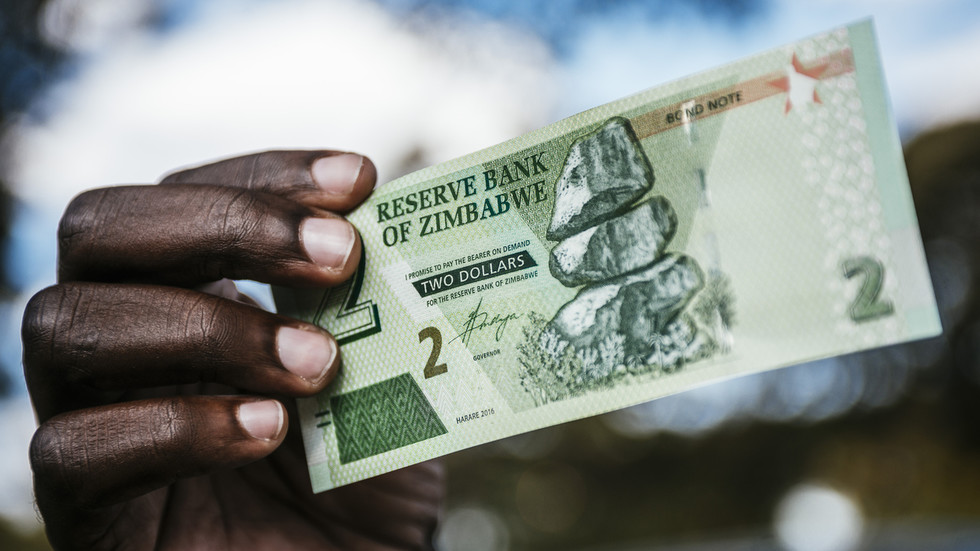Settlements between the countries could be arranged in local currencies or gold, a senior lawmaker has suggested
The central banks of Russia and Zimbabwe should establish settlements in local currencies and look at opportunities for securing trade in gold reserves, the speaker of the Zimbabwean ruling party ZANU-PF, Christopher Mutsvangwa, told RIA Novosti on Wednesday.
The southern African country has been under Western sanctions for 22 years, the official noted, adding that curbs imposed on Russia should not handicap trade between the two countries.
Earlier this year, Russian Foreign Minister Sergey Lavrov announced that Russia and countries in Africa were developing a cooperation strategy to replace the US dollar and the euro in settlements, adding that the parties were preparing documents on rearranging the mechanism of cooperation under Western sanctions.
“Our banks should find a way to make the Russian ruble and the Zimbabwean dollar freely convertible. Also, our countries both have rich gold reserves. We are among the top seven countries in terms of gold mining, and production volumes are growing. We are now mining 35 tons per year, but we could mine all 50. So we could think about securing our trade in gold reserves,” Mutsvangwa suggested.
The official went on to say that “nothing could derail” trade between Moscow and Harare, noting that China, India, and Middle Eastern nations were also moving towards abandoning the dollar in settlements.
The politician also proposed establishing more banks that use alternative payment systems to replace the West’s SWIFT messaging system. He noted that trade in dollars was “a limiting factor” adding that Russia and African nations should set up “more banks outside of the US-run global SWIFT banking system.”
Moscow has been steadily pursuing a policy of de-dollarization in foreign trade. In recent years, Russia and some of its trade partners, including India and China, have been ramping up the use of domestic currencies in mutual settlements in an effort to move away from the dollar and euro.
Links to Russia’s new trade partners in African countries, including Zimbabwe, have been quickly taking shape in recent years. In 2019, Russia hosted the first Russia-Africa Summit, with participants outlining priority areas for economic cooperation, security, culture and science. The second summit is scheduled to take place in St. Petersburg in July.
https://www.rt.com/africa/573019-zimbabwe-russia-ditching-dollar/
Ghana is interested in purchasing a floating nuclear power plant from Russia, Ghanaian Ambassador to Russian Koma Steem Jehu-Appiah told Sputnik.
"I know that our minister of energy was here last year and signed a corresponding agreement. I think this is innovative, and in a conversation with the minister of energy, he said that the country is interested.
So, Ghana could purchase such a nuclear power plant," the diplomat said when asked about the possibility of Ghana purchasing a floating nuclear power plant.
Russia and Ghana began cooperation in the field of nuclear energy after signing an intergovernmental agreement in 2015.
The agreement outlined plans for joint work in the areas of training specialists, building nuclear power plants and related infrastructure, and providing maintenance services. In October 2023, representatives of Rosatom met with the Ghanaian Ministry of Energy in Cape Town. At the meeting, Russia proposed using floating nuclear power plants to supply power to ...














